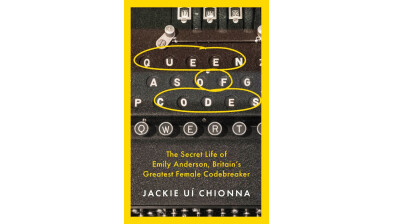Review: War – like the poor, it’s always with us

Robert Shiels reviews Why War?, a new book by British historian Richard Overy.
Professor Richard Overy asserts in the preface that his book is “an impertinence”. He concedes that because of his narrow expertise, “the world’s wars waged during the 1930s and 1940s”.
That important area is in contrast to the many thousands of years covered in the book most of which are beyond the professor’s field. There is a risk of spreading the material too thinly.
Further, the professor adds, historians are conspicuous in their absence, unlike other intellectual disciplines, in explaining the larger questions of why humans make war.
The book is aimed at a broad readership that might want to learn something more about the way modern scholarship has tried to answer the question, as topical today as ever of ‘why war?’
In the prologue the purpose of the book is said to be to examine the ways in which warfare has been explained by the major academic disciplines in the modern era.
In the first part of the book itself, the chapters are concerned with human sciences (biology, psychology, anthropology and ecology) and in the second part individual chapters cover human cognition (resources, belief, power and security).
Thus, in the first part, with a high level of abstraction but with great conciseness, first, the biological aspect of war are considered. The various ideas of evolutionary biology were to include the struggle for survival as an argument, with its consequence that the less fit perished.
Yet, the development of genetic science after 1900 set out the difficulty in suggesting a predisposition for conflict. An argument that war ensured the survival of the biologically fittest was ridiculed after the Great War because of the millions of fit young men killed, leaving the less fit at home.
Secondly, psychology as a discipline became involved in seeking to explain persistent warfare, initially considering the minds of individuals, only later considering a human instinct for pugnacity, and various theories of aggression.
Thirdly, an anthropological view of war is that of a cultural invention and is a rejection of the idea that warfare was due to genes or the working of the mind. That assessment raised the question at to when it was invented and for what reason.
Finally, the possibility that ecological disaster might lead to conflict either within or between states, has become a modern obsession. This concerns whether, or to what extent, there was a historic relationship between food scarcity, rising population levels, and human conflict.
Moreover, in the second part, resources are considered first, and it is said not necessary to be a Marxist to explain warfare in materialist terms. Economic motives may drive the predatory aspiration to seize or exploit resources through war.
Secondly, as for belief, religious faith or supernatural beliefs or political ideology can explain the decision for war in many contexts. Yet, secular western historians are often sceptical about this explanation, assuming that such beliefs are can mask the real motives for actions.
Thirdly, power as a reason for war is considered a difficult concept but the professor is of the view that the original Roman terms imperium, the right of command, remains a primary definition for power in the reason for war.
In that regard ‘hard power’ is expresses as military capability, and ‘soft power’ that exercised through political pressure, social hierarchy, economic dominance or cultural imperialism. The former is the more important of the two.
Finally, security as an explanation for a war is not power for its own sake but, rather, it is essentially for greater security in the sense of protecting places or people, or both.
The conclusion of the study is, unsurprisingly perhaps, that there is no monocausal explanation for war, which is not an aberration but ‘an integral part of the long human story’. Explanations move from the general context for warfare to specific motives to act.
The professor, with respect, has omitted the legal dimension of war. That is not a challenge to the explanation of the ‘Why’ in the book title ‘Why War?’ Yet, such discussion must surely consider formal definitions.
The United Kingdom Government may participate in political and diplomatic confrontations of a warlike nature but do they constitute ‘war’ until the Monarch signs a Royal Warrant to that effect?
It is clear that Why War? is not a history of war but it certainly provides a context for the explanations and reasons for war as a general aspect of human behaviour.
Professor Overy has produced a good summary of approaches to the subject of war and it demonstrates substantial reading on his part.
Why War? may soon be embedded in the syllabuses of universities or military colleges as a basic textbook for war studies.
Why War? by Richard Overy. Published by Pelican Books, 388 pages, £22.









